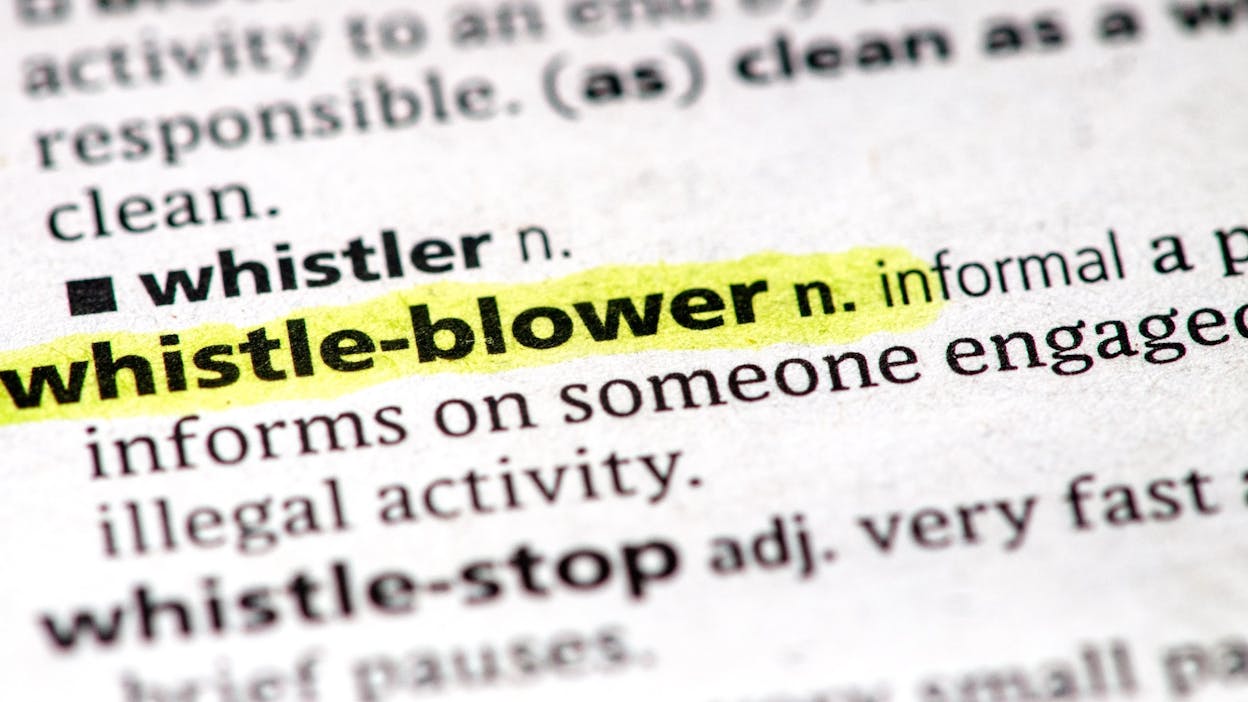Transparency International’s new self-assessment framework for internal whistleblowing systems is a valuable tool that helps organisations establish best-practice systems that protect both public interests and their own
From safeguarding public interests to protecting those of organisations in all sectors, the value of whistleblowing is increasingly well recognised. Numerous recent cases show that whistleblowing is one of the most effective ways to uncover corruption, fraud, mismanagement and other wrongdoing that threatens public health and safety, financial integrity, human rights and the environment.
This makes it essential that organisations encourage people to speak up against misconduct, by providing them with safe, effective internal reporting channels and robust protection from retaliation. If people feel unsafe to speak up internally, they may turn to the authorities or even make a public disclosure, depriving an organisation of the chance to address the issue before it escalates. Or they may simply stay silent, and wrongdoing that threatens the public interest and an organisation’s finances and reputation can remain unaddressed.
Recognising this, an increasing number of national laws require organisations to implement an internal whistleblowing system (IWS) that enables employees and stakeholders to raise concerns internally about potential misconduct. For instance, in European Union member states, most public and private organisations are obliged to have an effective IWS that provides safe, confidential reporting channels, protects whistleblowers from retaliation and addresses their reports.
Best-practice systems bring powerful benefits
An effective IWS is a powerful risk management and prevention tool, helping protect organisations from the effects of misconduct – including legal liability, reputational damage and serious financial losses. By fostering trust, transparency and accountability, a strong IWS provides real benefits to an organisation’s culture, brand, value creation and growth.
Despite these benefits, many organisations are falling short when it comes to implementing such systems. Some unintentionally overlook vital elements, while others take minimal steps, seeing IWS implementation merely as a box-ticking exercise to meet legal requirements.
In response, Transparency International has created a new IWS Self-Assessment Framework that supports organisations in establishing, implementing and reviewing their internal whistleblowing systems. By addressing the findings, organisations can ensure their IWS is effective and meets best-practice and international standards.
A spotlight on system shortfalls
The framework is aimed at organisations across the public, private and “third” sectors in any jurisdiction, including pan-national organisations such as the United Nations. Building on Transparency International’s Internal Whistleblowing Systems – Best practice principles for public and private organisations, it involves 130 questions covering eight dimensions of an effective IWS, from its scope and the protection it offers, to communicating within and about the system, and monitoring its effectiveness.
The questions are designed to detect any factors that could compromise an organisation’s IWS, such as gaps in the type of wrongdoing it covers, who can report and whether the protection it provides for whistleblowers is comprehensive. The framework allows users to assess whether their organisation’s system is vulnerable to breaches of confidentiality or conflicts of interest, and whether it is accessible to all, regardless of gender or social background. They can also identify where improvements are needed in areas such as their organisation’s “speak up” culture, roles and responsibilities within the IWS, record-keeping and training programmes.
The framework is easy to follow, guiding users through answering the questions, documenting strengths and weaknesses, analysing findings and developing specific recommendations for improving the IWS. Its structure mirrors that of Transparency International’s IWS Best practice for public and private organisations, helping organisations locate relevant principles and guidance when looking to enhance specific aspects of their system.
Driving improvement though insights
The insights gained from the framework can guide targeted reforms and improvements in whistleblowing procedures, to reinforce good practices, address gaps and improve the system’s effectiveness.
By bringing together different organisational departments and bodies to help analyse responses, develop recommendations and agree next steps, users can integrate feedback from various perspectives, while boosting understanding of the whistleblowing process across the organisation. Steps to strengthen an IWS might include updating policies, improving communication strategies, amending employment and external service contract templates, or enhancing training programmes to better support potential whistleblowers.
The framework also checks whether an organisation reviews its IWS appropriately, including via annual monitoring and a thorough assessment every three years to ensure the system meets international standards. Regular self-assessment provides opportunities for continuous learning and development, helping organisations stay updated on best practices, adapt to new expectations and regulations, and respond effectively to emerging challenges in whistleblower protection.
Reputational benefits of IWS assessment
The benefits of self-assessment extend far beyond the process itself. Completing an assessment is a proactive measure that demonstrates an organisation’s commitment to transparency, integrity and ethical behaviour, fostering trust among personnel and encouraging a culture of accountability in which people feel safe to report wrongdoing without fear of retaliation.
By demonstrating a focus on self-evaluation and improvement, they also build trust with external stakeholders, including regulators, partners and the public – critical for maintaining a positive reputation and ensuring long-term sustainability.
Used regularly, the framework provides a valuable tool to help organisations maximise their integrity, financial security and reputation, and meet legal obligations – safeguarding both the public interest and their own from the risks associated with inadequate whistleblower protection.
Transparency International’s Internal whistleblowing system self-assessment framework was produced under the EU-funded SAFE4Whisteblowers project. Transparency International’s Best-practice principles for internal whistleblowing systems were produced under the EU-funded Speak Up Europe project.
Source: Transparency International




